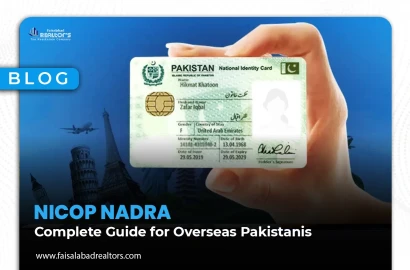Eid ul-Adha, known as the Festival of Sacrifice, is one of the most important holidays in the Islamic calendar. In 2024, Muslims worldwide will observe Eid ul-Adha 2024 on June 17th. This significant occasion marks the culmination of Hajj, the annual pilgrimage to Mecca, and commemorates the profound act of faith demonstrated by Prophet Ibrahim (Abraham).
In Pakistan, the government has declared a public holiday from June 17th to June 19th, allowing Muslims to fully engage in the religious observances and joyous festivities that characterize Eid ul-Adha in Pakistan. This article explores the rich traditions, meanings, and practices associated with this auspicious holiday, celebrating the spirit of unity and reflection that it embodies.
The Story Behind Eid ul-Adha
Eid ul-Adha comes from the story of Prophet Ibrahim, who was ready to do what God told him and sacrifice his son Ismail (Ishmael). Islamic legend says that just as Ibrahim was about to make the sacrifice, God, seeing how steadfast Ibrahim's faith was, sent a ram to be sacrificed instead of Ismail. This event brings up ideas of complete devotion, trusting God's wisdom, and following his rules.
Eid ul-Adha is a call for Muslims to live their lives in these ways. Now is the time to think about how important faith is and how ready we should be to make sacrifices for the greater good and to follow God's rules.
Getting ready and looking forward
In Muslim communities, the days before Eid ul-Adha are full of excitement and expectation. Getting ready for the holiday includes both spiritual and practical tasks. Homes are cleaned up and decorated with lights and holiday trinkets to make the area feel warm and welcoming.
Shopping is an important part of getting ready for Eid. Families often buy new clothes, especially for kids, because it's a sign of happiness and renewal. People buy fresh food for special meals and sweets that are part of Eid events in the markets and bazaars.
Getting ready spiritually
Along with getting ready physically, there is also a focus on getting ready spiritually. Muslims pray and think more as they try to align their hearts and thoughts with the themes of obedience and sacrifice that are at the heart of Eid ul-Adha. The days before the holiday are a chance to think about yourself and renew your faith. This sets the stage for a worthwhile holiday celebration.
What People Do on Eid ul-Adha?
Salat al-Eid, a special prayer, is said in groups at mosques or public prayer grounds to start the day of Eid ul-Adha. There are two parts to this prayer, called rakats. After the prayer, there is usually a sermon that focuses on sacrifice, kindness, and unity. For this prayer, Muslims put on their best clothes and gather together, which builds a feeling of community and a shared faith. Eid ul Adha prayer time is already known to all.
The Act of Sacrifice
The central ritual of Eid ul-Adha is the Qurbani, or the sacrifice of an animal, usually a sheep, goat, cow, or camel. This act commemorates Prophet Ibrahim's willingness to sacrifice his son and represents the readiness to give up something valuable in obedience to God.
The meat from the sacrificed animal is divided into three parts:
- One part is kept for the family.
- One part is shared with relatives and friends.
- One part is given to those in need.
This distribution ensures that the blessings of Eid are shared with everyone, reinforcing the values of generosity and community spirit.
Sharing and Charity
During Eid ul-Adha, people give and share. Muslims are told to help those who are less wealthy through Sadaqah (voluntary charity) and Zakat (obligatory charity). This kind act makes sure that everyone in the community, even the poorest ones, can join in the Eid parties.
Having an Eid ul-Adha party
On Eid ul-Adha, people get together and celebrate with joy. Everyone gets together to eat and give each other gifts. Traditional foods from different parts of the Muslim world are often served at the meals. This shows how rich the Muslim world's culinary history is.
Holiday treats and sweets
Food is an important part of celebrating Eid ul-Adha in Pakistan. The holiday is a feast for the eyes and the stomach, with tasty foods like biryani and kebabs and sweet treats like baklava and sheer khurma. Making and sharing these special foods is a way to show love and kindness, and it also brings people together in the community.
Events and performances of cultural significance
A lot of places around the world enjoy Eid ul-Adha with fairs, cultural shows, and other events for the whole community. From music and dance to art and crafts, these events show off the rich cultural traditions of Muslim groups. These kinds of events are fun, and they also show how Muslims all over the world enjoy their faith and heritage in many different ways.
Thoughts and Spiritual Growth
In addition to the celebrations, Eid ul-Adha is a time to think deeply about your faith and grow spiritually. The story of Prophet Ibrahim's offering shows how important it is to believe in God and follow His rules. Muslims are told to think about their own lives and try to be more religious and devoted.
Eid ul-Adha teaches us important lessons about kindness and suffering. It helps us remember how important it is to put other people's needs before our own and be ready to give up something useful for the sake of the greater good. The idea of selflessness and caring for others is at the heart of both Eid ul-Adha and Islam in general.
Making New Promises
For many Muslims, Eid ul-Adha in Pakistan is also a chance to make new promises to their faith and the groups they belong to. It gives them a chance to grow closer to God and return to living their lives according to Islamic principles. Eid ul-Adha encourages Muslims to seek spiritual renewal and live their daily lives according to the ideals of faith and compassion. They can do this through prayer, giving, or doing nice things for other people.
Happy Eid ul-Adha! All over the world
Muslims all over the world enjoy Eid ul-Adha with joy and enthusiasm, and each community adds its own cultural twist to the holiday. In Indonesia, for example, after big meetings and prayers, everyone shares a meal and a piece of meat that was sacrificed. In Turkey, the holiday is called Kurban Bayramı, and people get together with their families to eat traditional foods and enjoy. After Hajj 2024 , Muslims will celebrate Eid ul Adha on the next day.
Conclusion
For Muslims around the world, Eid ul-Adha is a time of spiritual rebirth and community unity. It makes us think about how important faith, suffering, and caring about other people are. Let's practice generosity and kindness as we enjoy Eid ul-Adha 2024. May this happy holiday bring peace, happiness, and blessings to everyone. Eid ul Adha Mubarak to all by Faisalabad Realtors .
If you're interested in any kind of property sale or purchase then do contact us. We are the best estate office in Faisalabad.
Contact us for:
House for sale
House for rent
Room for Rent
Flat for Rent
Ideal Farm House
Commercial Avenues
Related posts:
NICOP is issued by NADRA for Pakistanis living abroad. It works as a national identity card and also allows visa-free entry into Pakistan. Many people search for NICOP NADRA services because NADRA is the official authority that issues and manages...
Every year 5 February in Pakistan is observed as Kashmir Day. It's also referred to as Kashmir Solidarity Day. This day is an official public holiday across the country. The day is dedicated to showing support and unity with the...


 Faisalabad Realtors Guide: How to Attract Buyers & Sell Houses Faster in 2026
Faisalabad Realtors Guide: How to Attract Buyers & Sell Houses Faster in 2026
 Chak Jhumra – Jhumra City: A Growing Urban & Real Estate Hub
Chak Jhumra – Jhumra City: A Growing Urban & Real Estate Hub
 Top Commercial Areas for Shops & Offices in Faisalabad
Top Commercial Areas for Shops & Offices in Faisalabad
 Kisan Card Punjab: Complete Guide to Kisan Credit Card Scheme 2026
Kisan Card Punjab: Complete Guide to Kisan Credit Card Scheme 2026
 Aminpur Bangla – A Growing Real Estate Hub Near Faisalabad
Aminpur Bangla – A Growing Real Estate Hub Near Faisalabad